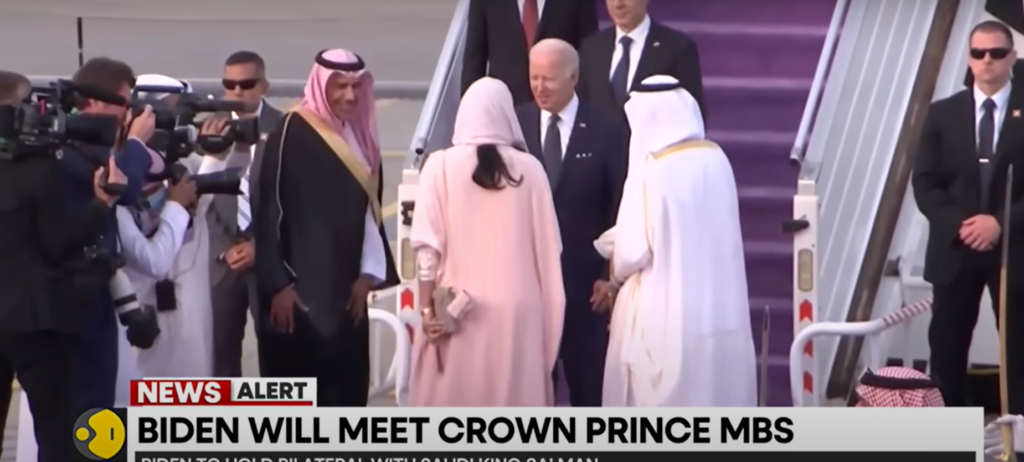The US and Iran exchanged military strikes last weekend for 3 days, which indicates the worsening of relations between the two countries, during the mutual attacks an American citizen was killed and 5 soldiers from the US army were injured, among the pro-Iranian militias in Syria there were 19 deaths as a result of attacks of US Air Force planes.
The American attacks were ordered by President Biden after Iranian drones attacked an American military base in the Haska area in northeastern Syria.
Iran denied that it was responsible for the attack by the pro-Iranian militias on the American military base and warned that it would respond decisively to any harm to the militias loyal to it.
Syria continues to be an arena where the US and Israel operate against Iranian targets.
The Iranian military attack reflects the assessment at the top of the Iranian regime that the US is weakening in the Middle East while Iran’s position is strengthening.
Iran began a journey to improve its relations with the countries of the region, the agreement reached with Saudi Arabia through the mediation of China opens up new horizons for it, following this agreement Saudi Arabia began negotiations for a reconciliation agreement with Syria under the rule of Bashar Assad, which is part of the axis of evil led by Iran, after a disconnection between them for more than a decade.
Saudi King Salman bin Abdulaziz invited Iranian President Ibrahim Raisi to visit Riyadh, and the embassies of both countries in Tehran and Riyadh will soon be reopened.
Iran has also been tightening its ties with the United Arab Emirates in recent weeks.
These steps by Iran reflect the continued weakening of the US position in the Middle East, the Biden administration is showing weakness and China is beginning to occupy a central place in the Middle East at the expense of the US position.
Iran’s supreme leader Ali Khamenei is beginning to recover from the effect of the Hijab protest on the internal situation in Iran and is changing course, he ordered an amnesty for the Iranian new year to 8000 protesters and began to work to strengthen the Iranian economy which has suffered severe blows in recent years, he understands that the collapse of the Iranian economy could lead to the collapse of his regime , he devoted the main part of his speech for the Iranian new year to the difficult economic situation, inflation and rising of prices, as well as Iran’s urgent need to successfully deal with the economic challenges.
Ali Khamenei neutralized the strong influence of the Revolutionary Guards on Iran’s foreign policy through Foreign Minister Hossein Amir Abd Allahyan who is loyal to them, he quietly purged the Iranian Foreign Ministry and replaced 30 ambassadors, the Iranian Foreign Minister was removed from handling the new normalization between Iran and Saudi Arabia and instead was sent to Beijing Ali Shamkhani, Secretary General of the Supreme National Security Council, to approve the agreement on the renewal of diplomatic relations between Iran and Saudi Arabia.
Shamkhani also handles the supreme leader’s order to improve relations between Iran and Iraq and the United Arab Emirates.
Khamenei weakened the position of the Revolutionary Guards in order to signal to the Western countries following the weakening of the economic situation in Iran and to try to soften their attitude towards Iran.
How does this affect Israel? Iran’s latest moves undoubtedly harm the American plan, which began during the Trump administration, to strengthen the relationship between Israel and the Arab countries in order to establish a joint military coalition of Israel and the moderate Arab countries against the nuclear Iran.
The possibility of Saudi Arabia and other Arab and Muslim countries joining the normalization process is receding, the Gulf countries fear for their security in the face of the weakness demonstrated by the Biden administration, they also see the wave of protest in Israel and understand that an Israeli military attack on Iran’s nuclear facilities is a very remote possibility that the Biden administration opposes.
They must maintain their security, the fear of Iran affects their decisions regarding the timing of getting closer to Israel.
Saudi Arabia has given an important role to China in the Middle East as a mediator between it and Iran and it is getting closer to Russia in regards to its position on the war in Ukraine and the increase in oil prices, Crown Prince Mohammed bin Salman is cultivating relations with President Putin, all of this is happening openly in front of the eyes of the US which seems surprised and at a loss .




